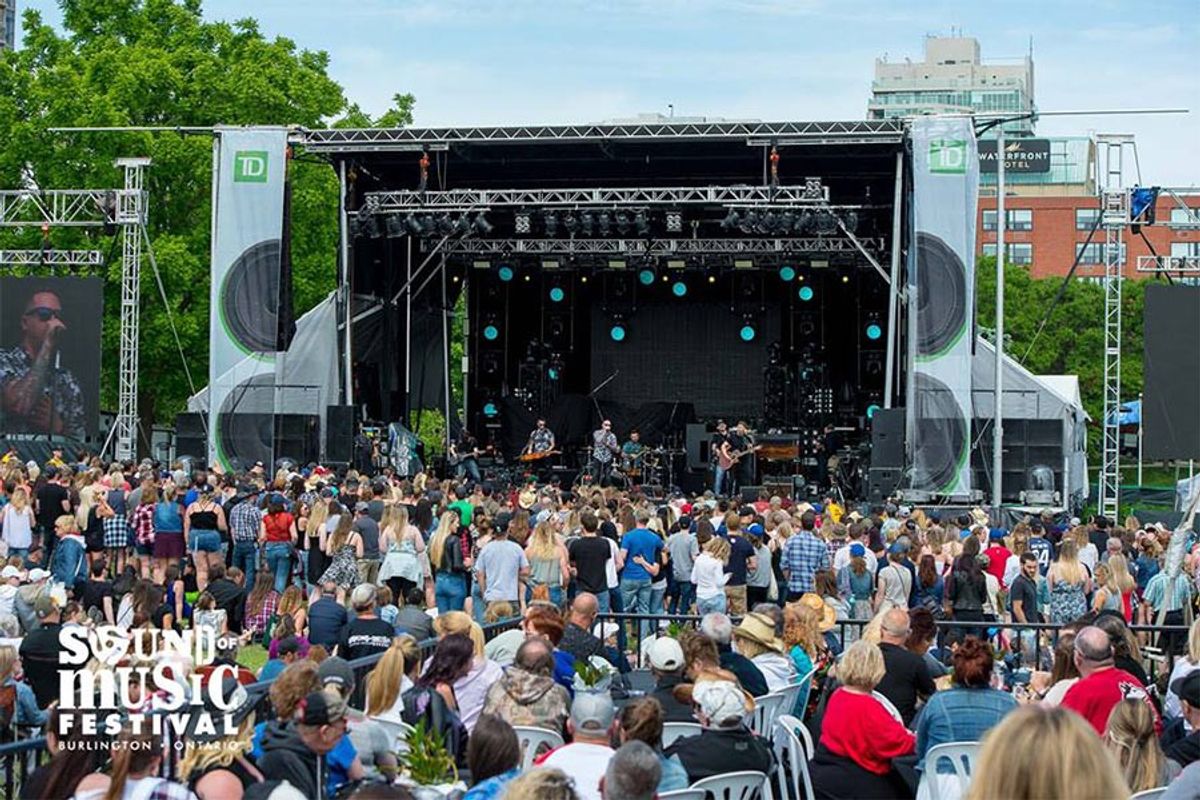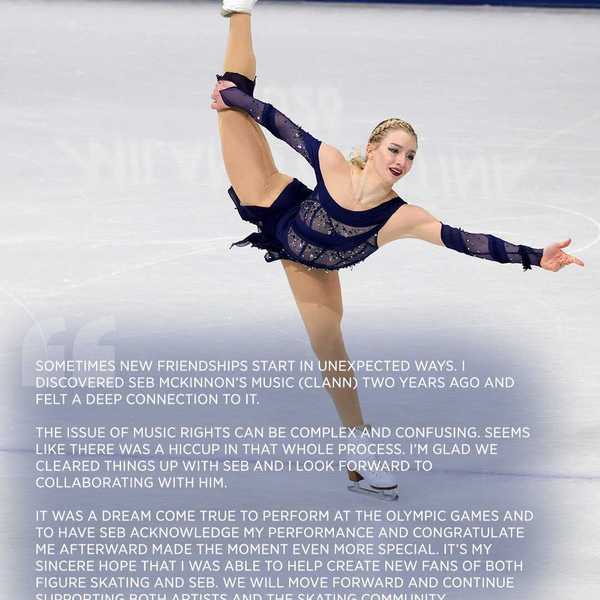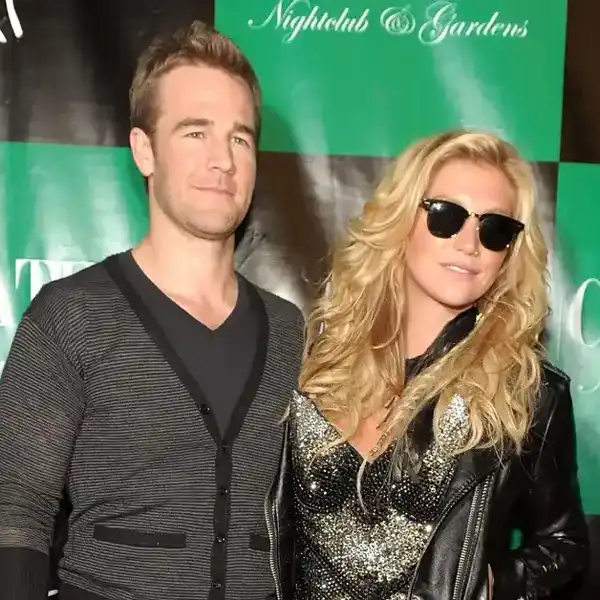Burlington, Ontario's Sound of Music Festival Faces Uncertain Future After Funding Requests Declined
“While the city has provided extensive support, the organization continues to face some hardships and financial challenges,” shared Burlington's commissioner of community services Jacqueline Johnson.

Sound of Music Festival
One of the country’s biggest free annual music festivals is continuing to face an uncertain future.
Last week, the fate of the Sound of Music (SOM) festival was discussed at Burlington, Ontario’s Committee of the Whole monthly meeting, as reported in the Penticton Herald.
At the Oct. 6 meeting, the committee voted to decline multiple of SOM’s funding requests, including one that asked the city to forgive a $225,000 loan the city provided for the festival’s 2025 edition and $22,000 owed from previous years. Additionally, the request for a $200,000 grant to cover vendor fees from 2025 and a $350,000 grant for the 2026 festival — and each edition in the future — was denied.
The Committee of the Whole’s vote will “discontinue municipal financial support due to ongoing financial instability and non-compliance with agreements and conditions.”
In an effort to move forward, the Council has directed staff to draft a report to explore potential opportunities for a different form of music festival and/or a different operator of a music festival at Spencer Smith Park, following “a call for expressions of interest from potential event organizers.”
All of these decisions will need to be approved by the city’s council on Oct. 14.
Previously, the SOM was boosted by the federal Heritage Fund and a $150,000 grant from the City of Burlington. Now, the committee has voted to reallocate 2026’s budget to the Community Investment Fund.
In August, the festival organizers shared they would be forced to shut down the festival if financial support wasn’t secure, citing that the cost of operating the massive event had outweighed the revenue generated. Two years prior, the non-profit festival sought out $200,000 in “interim financial support” from the Burlington city council, after losing sponsorship revenues amid lingering struggles caused by the COVID pandemic.
During the meeting, Brent Kinnaird, the SOM’s vice president of festival operations, shared the event’s many contributions to the city, highlighting that at its 2025 iteration, over 50 artists performed on the 100% Canadian lineup.
Previous festival performers include Marianas Trench, Gord Downie, Tom Cochrane, Carly Rae Jepsen, Blue Rodeo, Kim Mitchell, The Arkells, Collective Soul and Cowboy Junkies.
“Providing a spotlight for local and emerging artists has always been at our core,” he said. “We continued to do this during COVID, when most other events paused.”
Kinnaird continued: “Sound of Music is not merely an expense line for the city. It’s an investment. In people. In business. In community. For anyone to suggest that you can simply replace what we have built is offensive and disrespectful to our team.” He noted that in 2022, SOMl had an economic impact of $12.1 million on the community.
Mayor Marianne Meed Ward asked if it would be feasible for the festival to exist with the previously allotted $150,000 budget, to which Kinnaird replied that it would be an “incredible challenge” to accomplish, noting that the cost of the free event model exceeds one million dollars.
Ward 2 councillor Lisa Kearns said that it was time to upgrade from a free to a paid model.
“I think the short answer is yes,” Kinnaird said. “We need to consider this.” Organizers noted that while attendance at the free 2025 edition met expectations, the financial figures were lacklustre — most attendees did not take the festival up on its request for optional donations.
SOM organizers noted that if it received the requested funding, they would organize a scaled-back three-day festival with one main stage, one Burlington Performing Arts Centre Community Stage and a mandatory $5 per person daily entrance fee. In SOM’s proposal, the idea of a $5 charge per person or $20 for three people was mentioned.
“I completely support a waterfront music festival. I support it being free when we are using tax dollars,” Ward said following the vote. “That’s partly related to making sure everyone can enjoy it and that cost doesn’t become any kind of barrier to anyone participating in the festival.”
To effectively move forward, Dave Shepherd, Chair of the SOM organizing committee, said multiple discussions are needed with the city.
“All we are asking is a fair and open dialogue. Let’s have a conversation. Let’s meet face to face. Let’s bring the facts to the table and work like the professionals that we all are,” commented Shepherd.
Jacqueline Johnson, the city’s commissioner of community services, said staff have been in ongoing discussions with the SOM board for several months, with no clear outcome. She said the decision to decline the SOM’s funding request is not to end music festivals in Burlington, but to ensure the city’s cultural investments are transparent, equitable and accountable.
“While the city has provided extensive support, the organization continues to face some hardships and financial challenges and hasn’t met some key conditions in the agreement,” she noted, but did not identify what the unmet conditions were.
Johnson continued: “The approach proposed allows us to continue supporting arts and culture across the city and explore new opportunities for music at Spencer Smith Park in a way that is responsible and sustainable for the long-term.”
In voting to decline last week’s funding request, committee chair and Ward 4 councillor Shawna Stolte questioned how likely it is for the city to find a group that can create the same legacy of the Sound of Music festival.
“I would like to commend them for their efforts and I want to thank them,” she said. “I know they would not do this, but I would almost like to give them the opportunity, should it come to pass to be able to say, ‘I told you so’ because I think they have done a very good job.”
The Sound of Music isn't the first music festival to face hardships. In recent years, many Canadian music festivals have scaled back or shut down after facing tough post-lockdown circumstances, including rising production costs, fewer corporate sponsorships and hesitant audiences.
- 'COVID Ripped Up the Playbook': These Canadian Music Festivals Have Called For Support or Closed Since 2023 ›
- Ontario’s Sound of Music Festival Is on the Verge of Shutting Down Without 'Urgent Financial Support' ›
- Music News Digest: MRG Live To Head New Burlington, Ontario Music Fest, Replacing Sound of Music Festival | Billboard Canada ›
- ‘This Moment Must Serve as a Call to Action’: Riverfest Elora Speaks After Closing Due to Financial Strain | Billboard Canada ›
- Lakeshore Music & Arts Festival to Replace Sound of Music Festival in Burlington, Ontario in June 2026 | Billboard Canada ›

















